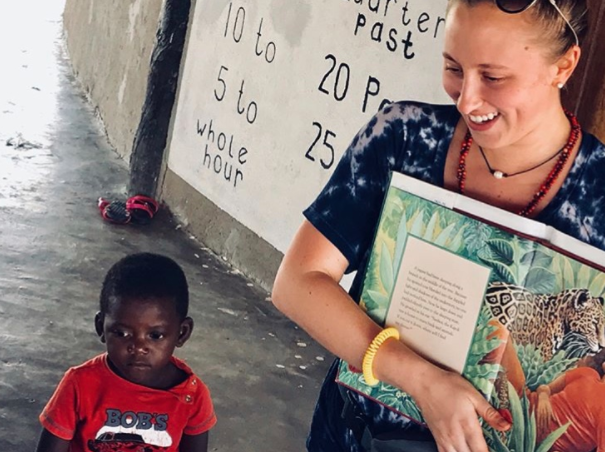
Going to Malawi at 21 years old seemed like a distant dream. Never did I think I would have the financial means to make it happen, or the time. I made countless excuses when Dr. Megan Farnsworth, the professor who is ahead of the Educate Chombo Committee, first presented me with the idea that I should go to Malawi. I made every excuse in the book, from money, to time, to resources, but one day I decided to put all doubts aside. If I wanted something in life, I needed to go out there and get it without trying to limit myself.
Farnsworth and the rest of the Educate Chombo Committee are a small organization whose goal is to build a library/learning center in the rural village of Chombo, Malawi. This dream of this amazing project came from a Native Malawian woman who received her Masters of Education at Southern Oregon University, Mercy Kangunga. Kangunga has had a passion for education because she too, has lived through the challenges that women face in rural Malawi.
After over two years of fundraising and sending funds over to Chombo, Malawi, Farnsworth, Kangunga, Fred Martinez, and myself were ready to travel across the world to the very place we had been dedicating so much time and effort to. Our trip was geared on a needs assessment for the library, to estimate how much more money we would need to fundraise, and for beginning literacy classes for children in the local school, and women who have dropped out due to illness, pregnancy, and poverty.

Malawi is the 3rd poorest nation in the world, and women are at an educational deficit. Women and girls are not prioritized for an education, and the cycle of poverty continues. In Malawi, only 65.75 percent of the population above 15 years old are literate, as of 2016.
In a nation where there is little access to jobs and resources to make money, this is a fee most cannot pay for any of their children. The library implementation in the village will not only be an asset to all of the people, but an essential need. When people are not receiving education about health, nutrition, and common skills, their life expectancy goes down for themselves, as well as their families.
In the mornings, we would provide lessons that focussed around conversational English games and songs for the children. Although English is Malawi’s official language of commerce, it is not taught in a conversational way, so most students do not retain the lessons. We would sing songs that are commonly found in ESOL (english as a second language) classrooms in the United States. It was truly fascinating to see the determination and effort that these children put in when we were teaching them. In some of the earlier grades, there were close to about 200 students per classroom.
Educating the women of the village of Chombo was the central focus of our trip. These women were all eager to hear and learn from us. Farnsworth, Kangunga, and I taught two “units” that were oriented on beginning teaching english through common reading and conversation practices. We thought it would be most essential for the women to learn through also learning a skill. So we taught the women to hand sew a handbag with a pattern, using a needle and thread. This entire project took around 3 days, and they completely loved it. We had 60 women in our class sessions and had to turn someone away because of the minimal resources. At the end of sewing their bags, they sang us a song of thankfulness in Chichewa. I have never seen such thankful, kind spirits.
The next unit we focused on was sewing reusable feminine products. Women in rural villages do not have access to feminine projects, and most of the time only have access to one rag to catch the menstruation. We also provided a pattern for this, and taught them how to create a reusable and washable pad for them to have for when they are going through that time of the month.
We also gave them a bar of soap, as well as one pair of underwear. When giving them these simple objects women who live in developed countries oftentimes take for granted. It was truly life changing. These women cheered with joy and delight when we told them they can have one pair of underwear.
Now that we are back in the US, the library can be completely done and fully functioning, if we raise about 3,000 more dollars. This is something the Educate Chombo committee is committed to completing, and we plan on returning to Malawi to open the library and continue helping the community solve poverty based problems.
If any interest is spurred in reading this article, and you would like to help fundraise for these women and villagers, please email me at schweighh@sou.edu.
Zikomo Combiere! (thank you very much)



